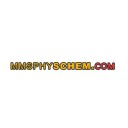One substance that has gained attention in recent times is HHC, or hexahydrocannabinol. The question arises: Does HHC show up on a drug test? To understand the answer, we must delve into the nuances of drug testing methods and the unique characteristics of HHC.
Understanding HHC:
Hexahydrocannabinol, a derivative of THC (tetrahydrocannabinol), is found in certain cannabis products. THC is the psychoactive compound in marijuana that is typically screened for in drug tests. HHC, while structurally related to THC, has distinct properties that set it apart. It is crucial to recognize that drug tests vary in their scope and sensitivity, which can influence whether HHC is detected.
Types of Drug Tests:
Drug tests come in various forms, each with its own set of strengths and limitations. The most common types include urine tests, blood tests, saliva tests, and hair tests. The method employed significantly impacts the substances that can be identified, including whether HHC is part of the screening.
Urine Tests: Standard urine drug tests, which are the most common, typically focus on detecting THC metabolites. HHC may or may not be included in the panel, depending on the specific test ordered.
Blood Tests: Blood tests are less common for routine drug screenings due to their invasiveness. They are more likely to be used in specific situations, such as accidents or DUI investigations. HHC's presence in blood largely depends on recent cannabis use.
Saliva Tests: Saliva tests are non-invasive and are gaining popularity. They are more likely to detect recent drug use, but the inclusion of HHC in these tests depends on the testing agency's preferences.
Hair Tests: Hair tests have a longer detection window and can identify a wider range of substances. However, the inclusion of HHC in standard hair drug tests is not guaranteed, as these tests often focus on THC and its metabolites.
Does HHC Show Up on a Drug Test?
The question of whether HHC shows up on a drug test lacks a definitive answer. It largely depends on the type of test administered, the substances included in the panel, and the specificities of the testing method.
In scenarios where the drug test specifically targets THC or its metabolites, HHC may not be detected. This is because HHC has a slightly altered chemical structure, leading to variations in how it is processed by the body and detected in standard drug screenings.
However, as the popularity of HHC-containing products grows, some testing panels may evolve to include HHC to capture a broader spectrum of cannabis-related compounds. It is essential for individuals subject to drug testing to be aware of the substances included in the panel and to communicate openly with testing authorities about any concerns regarding HHC.
Navigating Drug Testing Concerns:
For individuals using products containing HHC or other cannabis derivatives, open communication with employers or testing authorities is crucial. Transparency about product usage and understanding the specific substances tested for can help address any potential issues before the testing process.
Moreover, as laws and regulations surrounding cannabis and its derivatives continue to evolve, drug testing policies may also undergo changes. Staying informed about these developments can aid individuals in making well-informed decisions regarding their use of cannabis-related products.
In conclusion, the detection of HHC on a drug test is contingent on various factors, including the type of test, the substances included in the panel, and the evolving landscape of drug testing regulations. As the demand for clarity in this area increases, it becomes imperative for individuals to stay informed and engage in open communication with relevant authorities to ensure a fair and accurate assessment of their drug test results.








